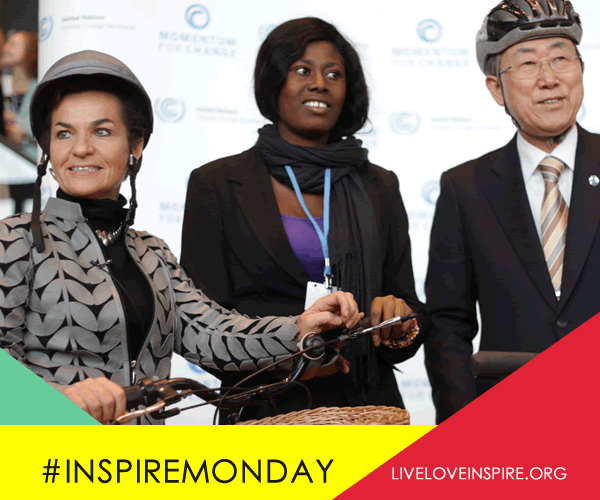New Arrivals
Social Enterprise: From Bamboo to Bicycles | Inspire Monday

Bicycles made out of bamboo are not entirely a novel idea. They have been in existence since the year 1894 when they were first patented in England by the Bamboo Cycle Company on the 26th of April. However, their use did not catch on as it was replaced with the development of tougher industrial metals such as steel and aluminium by bicycles’ manufacturers.
But with the advent of the green movement and the shift to more sustainable productions, bamboo bicycles have re-emerged and two Ghanaian ladies are using it to tackle poverty and unemployment in their country.
THE FOUNDERS:

Bernice Dapaah
Bernice Dapaah and Winifred Selby began the Ghana Bamboo Bikes Initiative to address climate change, tackle poverty, rural-urban migration and youth unemployment by creating jobs for young people, especially women, through the building of high quality bamboo bicycles.
For Bernice Dapaah, the idea to build bamboo bicycles in her home country of Ghana, began as a commitment project she had pledged to carry out at the Clinton Global Initiative University while also studying for a business degree.
Winifred Selby on the other hand, was only a teenager when she collaborated with Dapaah to start Ghana Bamboo Bikes. Her passion to build bamboo bicycles was borne out of a need to create a solution to the socio-economic problems in her community of which she had experienced first hand after having to sell goods as a young girl to put herself through school.
A few years after, Selby founded Afrocentric Bamboo as the profit-making arm of the initiative, and in addition established

Winifred Selby
a bamboo plantation to supply the raw material needed and keep up with increasing international demand for the bicycles.
She also earns extra revenue selling bamboo from the plantation, and is exploring the use of bamboo waste from production of the bicycles into charcoal briquettes as an alternative to using wood for cooking, thereby tackling deforestation on both fronts.
Through the process of building Ghana Bamboo Bikes into a social enterprise, these two women have battled numerous entrepreneurial challenges, which were most times exacerbated by being young and female. But the challenges they faced only motivated them to achieve more success.
Today, they define that success by the 35 people they employ and the 50 more they plan to provide with jobs following a recent collaboration with a local foundation in a mining community that will offer at risk youths employment as bicycle builders in the two new factories they are about to set up in the community.

Bamboo Bike. Img from marcjacobs.co
THE GOAL:
The Ghana Bamboo Bikes Initiative trains individuals on the production of the bikes and equips them to be able to set up their own small-scale production base in any part of the country.

Ibrahim Djan Nyampong
Before Bamboo Bikes, Ibrahim Djan Nyampong was a struggling art dealer who sold art and craft materials to tourists visiting the arts centre in Accra, Ghana.
Today, he owns his own workshop building the bicycles made out of bamboo and employing/training ten boys who when their training is complete will go on to set up their own workshops and create more employment opportunities for youths in their respective communities.
The Bamboo Bike Academy of the Initiative teaches the manufacture, assembly and repair of the bikes to fit international standards. They also train women and young girls how to make the briquettes from the bamboo waste, firmly placing the company as an environmentally sustainable and eco-friendly green initiative and venture.
The Ghana Bamboo Bikes Initiative does not just tackle a handful of social, economic and environmental issues, it tackles nearly all of them. It’s programmes aim to change the face of the manufacturing and production sector of the African economy. If more Africans like these young women can be producers, makers and exporters of goods, more African nations can sit at the wider economic table and make decisions from it rather than being made to settle for the scraps tossed off it.








0 thoughts on “Social Enterprise: From Bamboo to Bicycles | Inspire Monday”